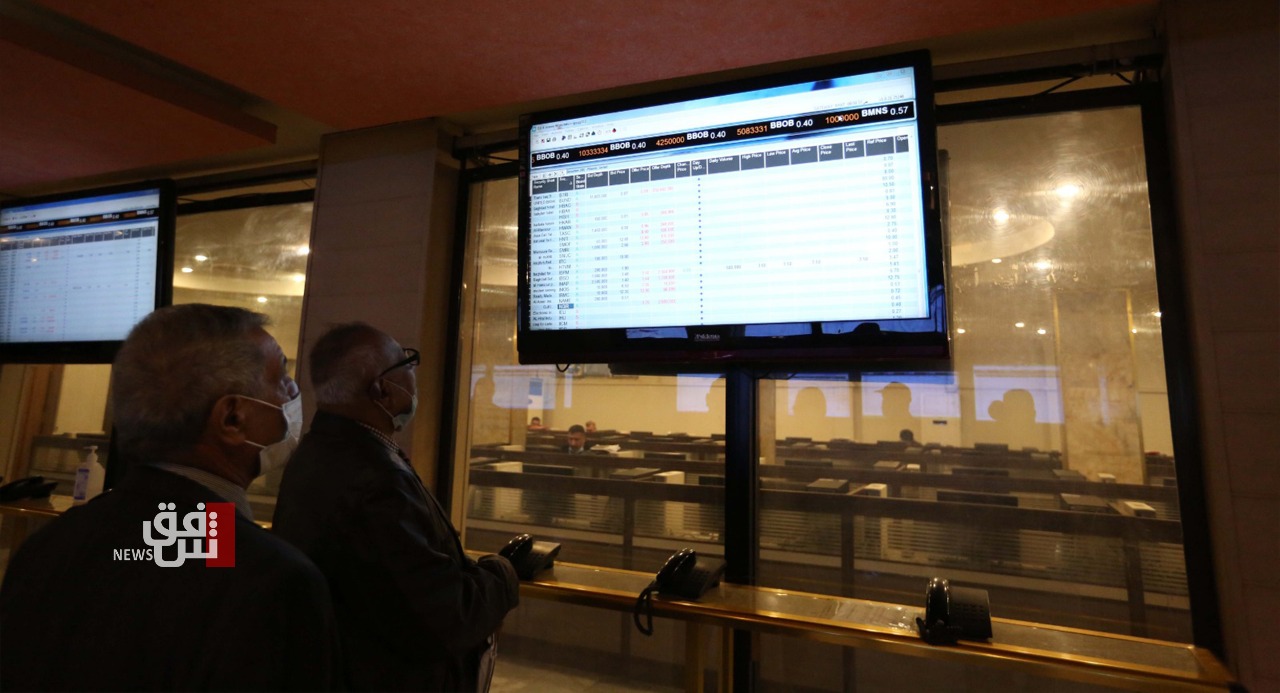Shafaq News/ Iraq’s stock marketconsidered a vital pillar for channeling savings into investments, remainsunderdeveloped and overshadowed by regional counterparts. Authorities arestriving to revitalize the market to attract investors and promote economicdiversification, however, challenges such as political instability, limitedindustrial and agricultural sectors, and bureaucratic hurdles continue toimpede progress.
Market Overview
The Iraq Stock Exchange (ISX) wasestablished in 1992 as the Baghdad Stock Exchange under Law No. 24 of 1991. Itwas later renamed in 2003, listing 113 private and mixed companies at itsinception. However, despite its long history, the ISX lags behind neighboringmarkets in trading volume and overall activity.
Foreign investors remain hesitant,citing Iraq’s political and economic instability, as well as complexadministrative and legal procedures for opening accounts and transferringprofits. These barriers contribute to the market’s small size and limited appeal.
Economic Challenges and MarketDynamics
Muzher Mohammed Saleh, financialadvisor to Iraq’s prime minister, highlighted the structural issues plaguingIraq’s economy. “The country inherited a mono-reliant economy heavily dependenton oil revenues, exacerbated by decades of war, sanctions, and economicisolation,” Saleh told Shafaq News.
“Unfortunately, the industrial andagricultural sectors, which are essential for diversifying the stock market,are significantly weak.”
These two sectors collectivelycontribute only 6–7% of Iraq’s GDP, according to Saleh, with most activitiesbeing individual rather than corporate. He revealed that the stock market’sunderdevelopment mirrors the broader structure of Iraq’s economy, where bankinginstitutions dominate due to the liberalized, oil-dependent economy.
Notably, over 50% of ISX’s activitystems from banking institutions.
“The government’s new economicstrategy focuses on fostering a production-oriented partnership between thepublic and private sectors to enhance economic diversification,” Saleh added.He noted that the success of the stock market hinges on achieving broadereconomic diversity and strengthening foundational sectors like industry andagriculture.
Market Constraints
While regional markets in the Gulfand North Africa have modernized rapidly, Iraq’s stock market has struggled tokeep pace. Broker Mohammed Madloul pointed out that neighboring markets likeEgypt and the UAE provide 24-hour stock price tickers in public spaces,allowing citizens to trade shares outside traditional hours. By contrast,trading in Iraq is restricted to specific hours, limiting transactionopportunities.
“In Iraq, the market’s size andactivity are constrained,” Madloul said. “Many stocks trade at values below oneIraqi dinar, reflecting the limited scope of investments.” However, heacknowledged some progress in the banking sector, noting that the marketcapitalization of listed companies grew from 6.88 trillion dinars (about $5.2billion) in 2021 to 10 trillion dinars in 2024 (about $7.6 billion.)
“This growth highlights a potentialfor expansion, albeit focused heavily on the banking sector.”
Weak Private Sector
Economic expert Durgham Mohammed Aliattributed the ISX’s small size to the lack of large companies and a strongprivate sector in Iraq. “The market reflects the weak state of Iraq’sdevelopmental sectors and the public’s lack of trust in it,” Ali told ShafaqNews. “The ISX remains technically underdeveloped compared to Gulf markets.”
Ali criticized the lack of efficientinvestment portfolio management and regulatory constraints imposed by the ISX’soversight body. “These restrictions limit the operations of brokerage firms anddiscourage robust investment activities,” he said. “The performance of themarket is directly tied to the efficiency of listed companies, which remainweak.”
Modernization Efforts
Despite these challenges, effortsare underway to modernize Iraq’s stock market. Taha Ahmed Abdul-Salam, ISX’sexecutive director, stressed the importance of stability and long-termcorporate vision for attracting investors.
“The number of listed companies hasincreased from 105 to 107, and we are working to add more,” Abdul-Salam toldShafaq News. “This expansion is essential for attracting new investors.”
Abdul-Salam revealed that the ISXhas signed an agreement with the Egyptian Exchange to implement a new OrderManagement System (OMS), enabling investors to trade via smart devices. “Weexpect to launch this system by June or July next year,” he said. Thismodernization is seen as a critical step toward making the market moreaccessible and competitive with regional counterparts.

